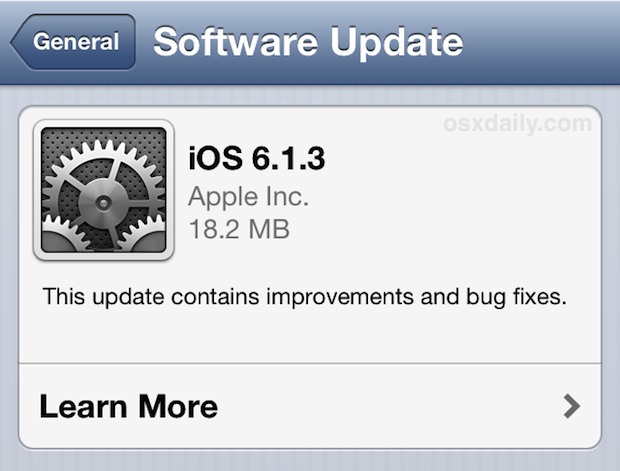Automatically Log Out of a Mac After a Period of Inactivity
 Using the automatic log out feature is a good way to bring an additional layer of security to a Mac. It works just as you’d expect; after a predetermined amount of time has passed without activity, the active user account logs itself out. This means all currently running apps close out as well as all documents which save in their current state through the Versions & Resume features. Then, in order to use the Mac again, someone will have to log back in with appropriate user and password credentials, thereby preventing unauthorized access. And of course because of the relatively new OS X Resume feature, once you do log in again all of your past apps and documents will launch again where you left off.
Using the automatic log out feature is a good way to bring an additional layer of security to a Mac. It works just as you’d expect; after a predetermined amount of time has passed without activity, the active user account logs itself out. This means all currently running apps close out as well as all documents which save in their current state through the Versions & Resume features. Then, in order to use the Mac again, someone will have to log back in with appropriate user and password credentials, thereby preventing unauthorized access. And of course because of the relatively new OS X Resume feature, once you do log in again all of your past apps and documents will launch again where you left off.
Read more »





 The Voice Memo app bundled with the iPhone allows you to use the device as a personal recorder, in much the same way people used to carry tape recorders to jot down thoughts, meeting notes, or just personal messages.
The Voice Memo app bundled with the iPhone allows you to use the device as a personal recorder, in much the same way people used to carry tape recorders to jot down thoughts, meeting notes, or just personal messages. 
 Disabling the camera access in iOS prevents the Camera app icon from appearing on the home screen, it turns off the lock screen camera, and it also prevents all third party apps from using the camera at all, which as you may have guessed also disables FaceTime. No, you don’t have to physically remove the camera lens, this is all done by simple software settings.
Disabling the camera access in iOS prevents the Camera app icon from appearing on the home screen, it turns off the lock screen camera, and it also prevents all third party apps from using the camera at all, which as you may have guessed also disables FaceTime. No, you don’t have to physically remove the camera lens, this is all done by simple software settings.



